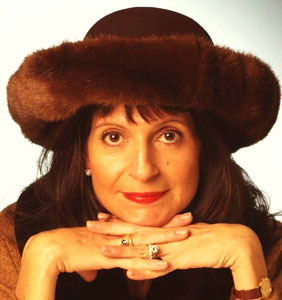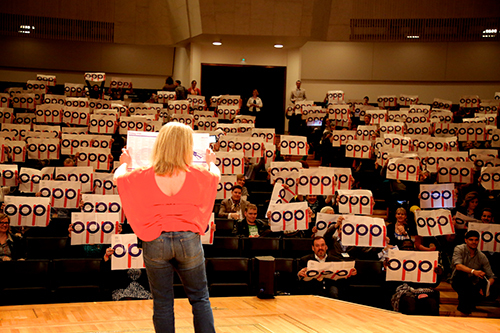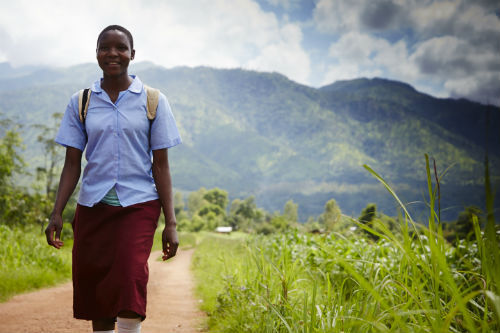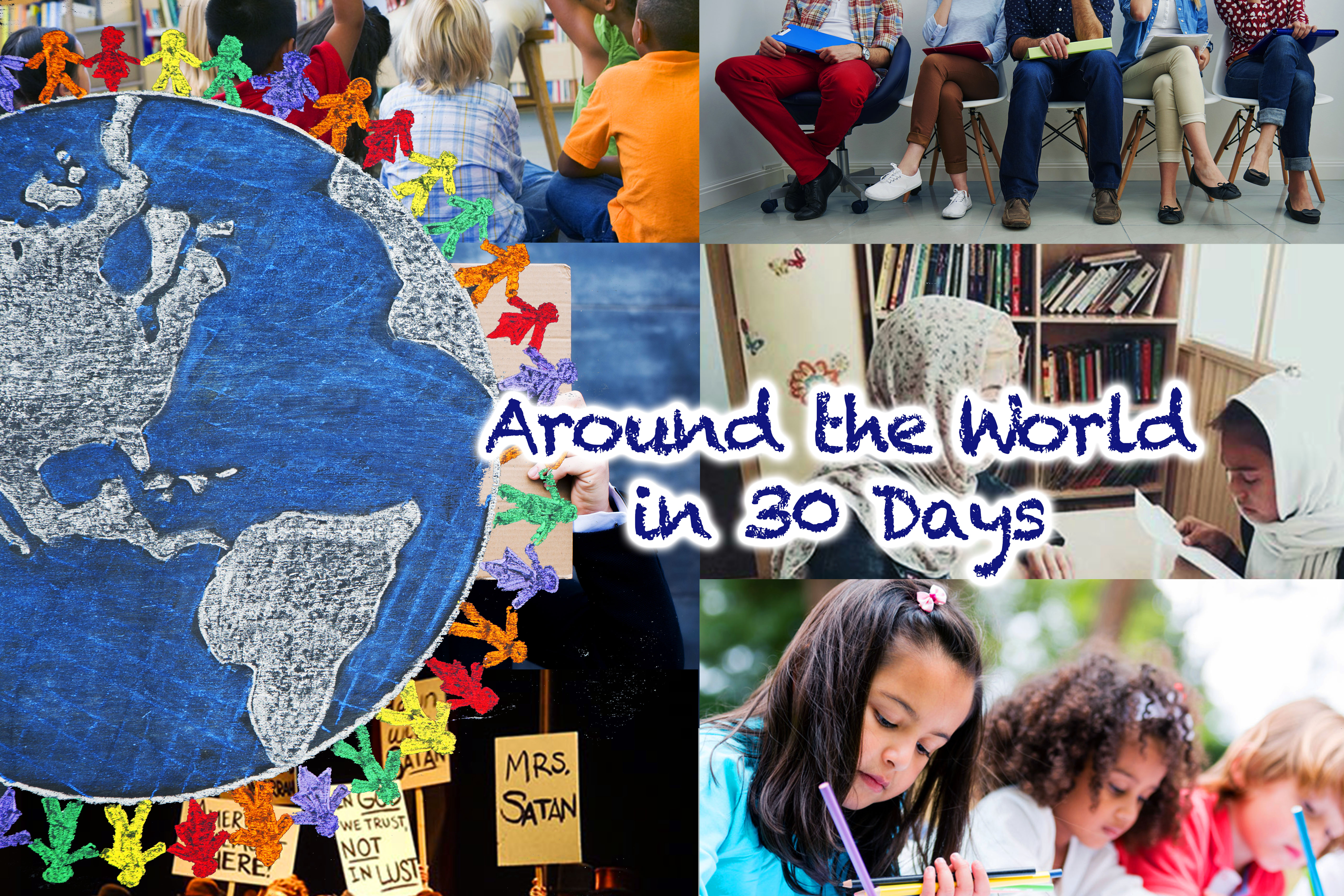
En avril, Je continuais mes conversations avec des leaders d'opinion dans le monde entier sur de nombreux sujets, y compris le rôle des tests standardisés, l'inégalité mondiale, créativité, et de l'innovation dans notre monde d'aujourd'hui.
I saw first hand the amazing work that Creative Oklahoma is doing in that state to nurture the arts with schools, les dirigeants et les communautés d'affaires. This is the age of innovation and all our futures depend on it. The Tribeca Disruptive Innovation Awards and Anti-Summit workshops at the Tribeca Film Festival taught the audience profound lessons on innovation by sharing the stories of some of the world’s most impressive entrepreneurs. Notre Top 12 Global Teacher bloggers tackled the topics of standardized testing and learning in the classroom this month. I also researched one of many emerging initiatives to prepare graduate students for study abroad. I had an insightful chat with Howard Gardner and Pasi Sahlberg about what makes US and Finnish education so great. et enfin, I talked to WISE Education Prize winner, Ann Cotton, about the continued success of her organization in Africa, Camfed.
Finlande is remarkable for not only routinely scoring among the top nations on the PISA exams, but also for being among the most equitable school systems in the world. The US is widely seen as having the world’s finest higher education institutions. Gardner note que “unlike the case in other countries, où l'enseignement supérieur est essentiellement professionnelle ou professionnel, American colleges and universities offer a liberal arts education — a broad set of courses which develop analytic, créatif, and communicative capacities.” According to Sahlberg, Finland’s success “is often built on research, l'innovation et les modèles d'autres pays, most often from the United States.”
My Top 12 Les blogueurs enseignants tackled the enduring question of how to balance test preparation with overall classroom goals. It turns out that many refuse to focus exclusively on the test, working instead on larger goals such as critical thinking and real world experience. Most found good test scores could fall into place as a byproduct of developing a love of learning. But almost all felt that standardized testing misses the mark on what’s important in the classroom.
If standardized testing is too caught up with traditional modes of judgment that make no sense to assess the present day student, then one has to hope that the high stakes testing system will innovate sometime soon. Pendant ce temps, at the Tribeca Disruptive Innovation Awards (inspired by Clay Christensen’s Theory of Disruptive Innovation), the impressive list of global honorees talked about the innovation occurring in our world right now. I asked some of the honorees to share their innermost secrets on disruptive success. One of the many quotable comments was from Matthew Putman of Nanontronics: “Do not look solely to the leaders in your field. Let Henri Matisse guide you as much as Steve Jobs.”
We live in a global world and I had the pleasure of talking to Tom roche (Associate Provost for Enrollment Services at Teachers College, Université de Columbia) about the International Pre-Graduate Program that Teachers College is launching this summer. Tom filled me in on the skills and knowledge sets that are most important to students preparing to teach and study in America, and noted that “Classroom discussions are often different from culture to culture. The expectations of the students might differ across cultures.”
Enfin, I talked to the extraordinary Ann Cotton, Founder and President of Camfed, a world-renowned non-profit organization tackling poverty and inequality in sub-Saharan Africa. Ann discussed the continued importance of Camfed, the various changes in education inequality that have occurred since she began her work in Africa, and the benefits of the WISE Prize for Education she received at the end of last year. Her advice to newcomers who want to make a difference to global inequality is to “listen very hard and learn a great deal.” Ann’s practice of compassionate thinking and learning has allowed her to pave the way for great progress in African education. The best schools, in her experience, are always “looking at the wider individual. We have to think about the whole child because one will succeed in many different ways in life and if the education system puts academic measurement as the main way of measuring, nous plaçons les enfants et les institutions sous une pression énorme.”

Rejoignez-moi et leaders d'opinion de renommée mondiale dont Sir Michael Barber (Royaume-Uni), Dr. Michael Bloquer (États-Unis), Dr. Leon Botstein (États-Unis), Professeur Clay Christensen (États-Unis), Dr. Linda Darling-Hammond (États-Unis), Dr. MadhavChavan (Inde), Le professeur Michael Fullan (Canada), Professeur Howard Gardner (États-Unis), Professeur Andy Hargreaves (États-Unis), Professeur Yvonne Hellman (Pays-Bas), Professeur Kristin Helstad (Norvège), Jean Hendrickson (États-Unis), Professeur Rose Hipkins (Nouvelle-Zélande), Professeur Cornelia Hoogland (Canada), Honorable Jeff Johnson (Canada), Mme. Chantal Kaufmann (Belgique), Dr. EijaKauppinen (Finlande), Le secrétaire d'Etat TapioKosunen (Finlande), Professor Dominique Lafontaine (Belgique), Professeur Hugh Lauder (Royaume-Uni), Seigneur Ken Macdonald (Royaume-Uni), Professeur Geoff Masters (Australie), Professeur Barry McGaw (Australie), Shiv Nadar (Inde), Professeur R. Natarajan (Inde), Dr. PAK NG (Singapour), Dr. Denise Pape (États-Unis), Sridhar Rajagopalan (Inde), Dr. Diane Ravitch (États-Unis), Richard Wilson Riley (États-Unis), Sir Ken Robinson (Royaume-Uni), Professeur Pasi Sahlberg (Finlande), Professeur Manabu Sato (Japon), Andreas Schleicher (PISA, OCDE), Dr. Anthony Seldon (Royaume-Uni), Dr. David Shaffer (États-Unis), Dr. Kirsten immersive, (Norvège), Chancelier Stephen Spahn (États-Unis), Yves Thézé (LyceeFrancais États-Unis), Professeur Charles Ungerleider (Canada), Professeur Tony Wagner (États-Unis), Sir David Watson (Royaume-Uni), Professeur Dylan Wiliam (Royaume-Uni), Dr. Mark Wormald (Royaume-Uni), Professeur Theo Wubbels (Pays-Bas), Professeur Michael Young (Royaume-Uni), et le professeur Zhang Minxuan (Chine) alors qu'ils explorent les grandes questions d'éducation de l'image que toutes les nations doivent faire face aujourd'hui.
La recherche globale pour l'éducation communautaire page
C. M. Rubin est l'auteur de deux séries en ligne largement lecture pour lequel elle a reçu une 2011 Upton Sinclair prix, “La recherche globale pour l'éducation” et “Comment allons-nous savoir?” Elle est également l'auteur de trois livres à succès, Y compris The Real Alice au pays des merveilles, est l'éditeur de CMRubinWorld, et est une fondation perturbateurs Fellow.
Suivez C. M. Rubin sur Twitter: www.twitter.com/@cmrubinworld





Commentaires récents